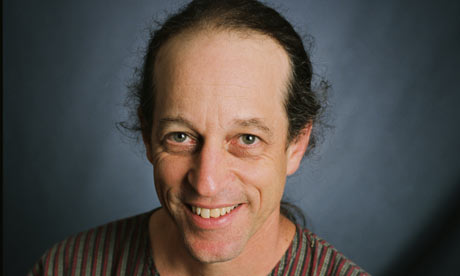
Gary Greenberg first realised he suffered from what we have come to call depression one afternoon in 1987. He was 30, in a failing marriage, and the understanding came to him after he had lain on the floor all afternoon in his study and watched particles of dust falling in a shaft of light while "racked by some unspecifiable pain, like my whole being was a phantom limb". The knowledge should not have come as a shock to him, really – after all, he was a full-time psychotherapist and spent a part of most days hearing the stories of other depressives – but it did. And he found himself beset by the dilemma that all depressives face: was this desperate feeling a response to something outside of him – to the failure of his relationship, and the hangover of feelings of worthlessness that had come from growing up in an unhappy family – or was it rather a factor of his brain chemistry; that is to say, did he feel so unfathomably sad because of marriage, or molecules?
Greenberg's dilemma set him on a quest that has culminated 33 years later in a book: Manufacturing Depression. The book is unlike other therapeutic books that you have read in that it offers neither solutions, nor even suggests ways to find definitive answers to the eternal question: am I happy enough? Rather it is a personal and compulsively honest account of a long journey into the complex state of mind that has become both a catch-all pathology and a multi-billion-dollar industry.
Greenberg's first marriage ended, but his depressive episodes did not. In 2006 he enrolled, for a journalistic exercise, on a trial of a new anti-depressant drug at Massachusetts General Hospital. His experiences on that trial clarified a lot of his thinking into the question that had long interested him: namely, was there any value in treating human suffering as an illness?
I spoke to Greenberg last week at his home in Connecticut. I wondered if writing the book had itself been an act of therapy?
"Absolutely," he says. "And not just in the stories I was telling about myself. I really had to figure out what it means to think about suffering as the result of neuro-chemical events, which is increasingly the white noise of our lives. I didn't know what I really thought until the last page of the book."
It would be far too simplistic to characterise Greenberg's argument as being "the drugs don't work". He believes that in certain contexts, and with certain caveats they can and do, but he remains deeply unconvinced that the blanket prescription of anti-depressants to deal with our reactions to life's extreme events, or to "ordinary" human misery, is helpful or enlightening. "I think," he says, "it is slowly dawning on people that with many forms of suffering there is no magic bullet. Simple answers will always elude us."
The complex network of solutions that he favours also takes in an understanding of the history of melancholia and a sense that "there is something redemptive in narrative"; that is to say, that there are far more revealing ways to intervene in the stories we tell ourselves about our lives than pharmaceutical ones.
His own story is full of excursions from that argument, however. One of the more startling passages in the book is the one in which he describes how he found how to love his second wife through the experience of taking ecstasy with her [extracted right], a one-off intervention that changed his sense of self and the course of his life for ever. Didn't that event prove that what we think of as love was a purely chemical reaction?
"The great lesson of that experience for me was that for the first time I saw I really was properly equipped to do it [to love]. Thank God for those brain chemicals! What really bothers me about reducing emotions to neuroscience, though, isn't that they are making all these discoveries about the stuff that is going on in our brains; it is the hubris of suggesting that that explains everything."
Does he think happiness is in any way a normal state?
'We live in a society where happiness is constantly placed just outside our reach,' he says. "Achieving it is not the norm, but pursuing it is. Put bluntly: if there was no more longing, there would be no more commerce."
It is against the commercialisation of sadness that most of his book is directed. But he also finds the limits both of cognitive therapies and talking cures (though he continues to practise as a therapist). The most effective cures he found for himself lay in friends, and hard physical work, and not taking himself too seriously. Does this represent wisdom or a loss of faith?
"It's like this," he suggests. "I used to think it was possible to overcome yourself in some way. Now I think what we can do is that we can move into our own stories, grapple with who we are and try to live with that."

